The 14 Best Citrus Perfumes Have Me Dreaming of Beach-Side Margaritas
A zesty pick-me-up.
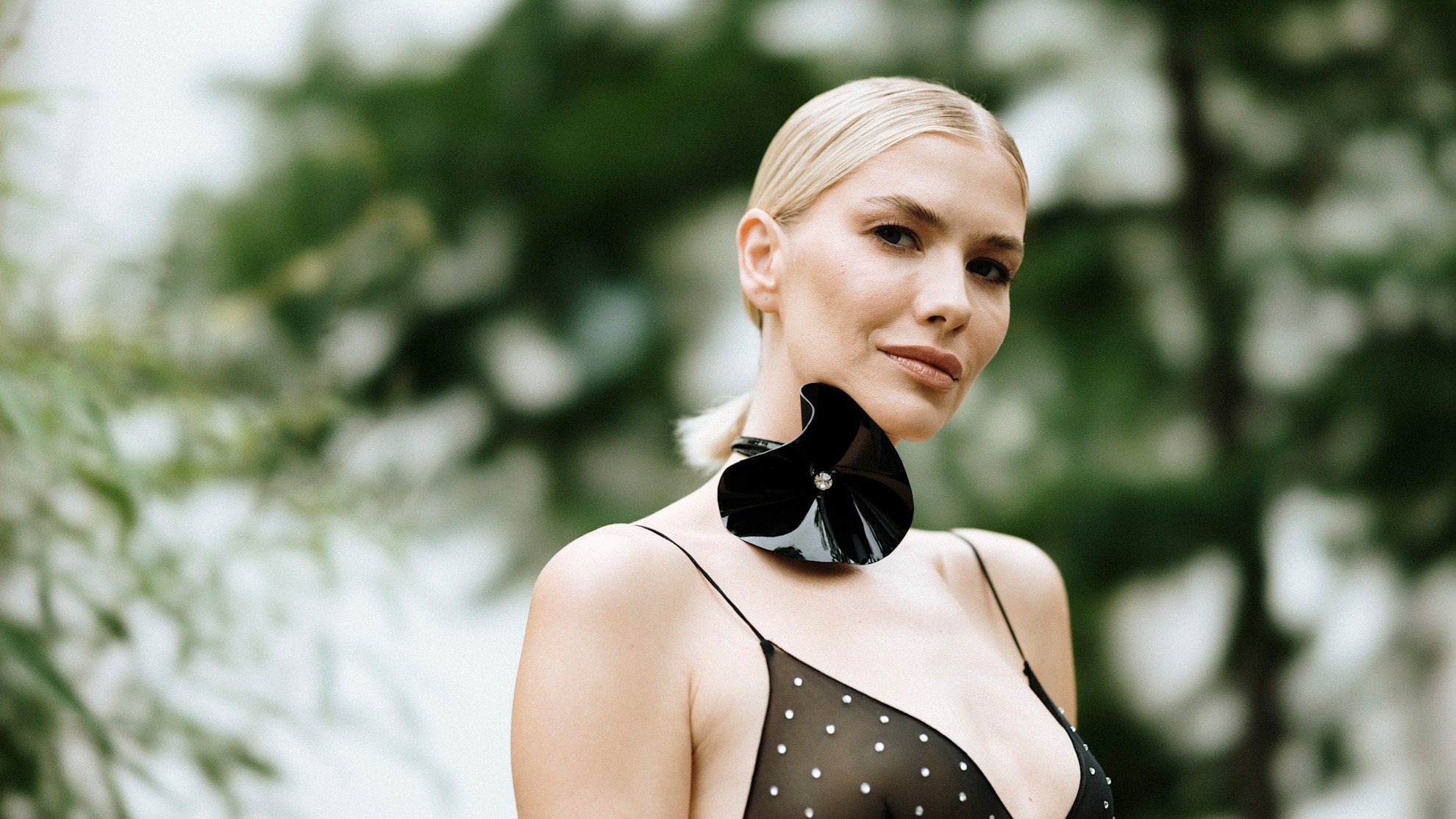
My first and most influential scent memory is my mom rubbing a clementine peel on my wrists and encouraging me to breathe in the best— and notably natural —citrus fragrance. It was more sensorially fulfilling than taking a bite of the flesh ever could be. Alas, a real fruit peel isn't a long-lasting scent, and probably won't land on your list of best perfumes—but you can come close with the best citrus perfumes.
Whether you're an orange fanatic like me, or prefer zesty hits of lime, lemon, or bergamot, citrus perfumes are known for their ability to perk up the senses. "The scent of citrus is a blend of bright, uplifting, and refreshing notes. Whether it is the crisp, facet of lemon, the sweetness of oranges, or the tangy notes of grapefruits, they are refreshing, invigorating, and convey a sense of cleanliness," shares dsm-firmenich perfumer Erwan Raguenes. "For me, citrus notes also have the power to evoke positivity and create a vibrant atmosphere."
Carlos Huber, a fragrance developer and founder of Arquiste, compares citrus notes to your favorite crisp cotton shirt or linen pants. Like a great-fitting white T-shirt, "they work with everything," he says. Fragrance expert Eudora Nwasike notes that they can either energize and focus their wearer or transport the mind's eye to a sunny day at the beach.
Ahead, some of the fragrance industry's most brilliant noses and editors break down everything you need to know about the best citrus perfumes. Here, I dig into different notes, the history of citrus in perfumery, and (of course) the best citrus perfumes to pick up for yourself.
The Best Citrus Perfumes
- The Best Citrus Perfume Overall: Parfums de Marly Perseus Eau de Parfum
- The Best Unisex Citrus Perfume: Tom Ford Neroli Portofino Eau de Parfum
- The Best True Citrus Perfume: Phlur Tangerine Boy Eau de Parfum
- The Best Everyday Citrus Perfume: Dolce & Gabbana Light Blue
- The Best Classic Citrus Perfume: Chanel Chance Eau Fraîche Eau de Parfum Spray
- The Best Refreshing Citrus Perfume: Arquiste L'Etrog Acqua
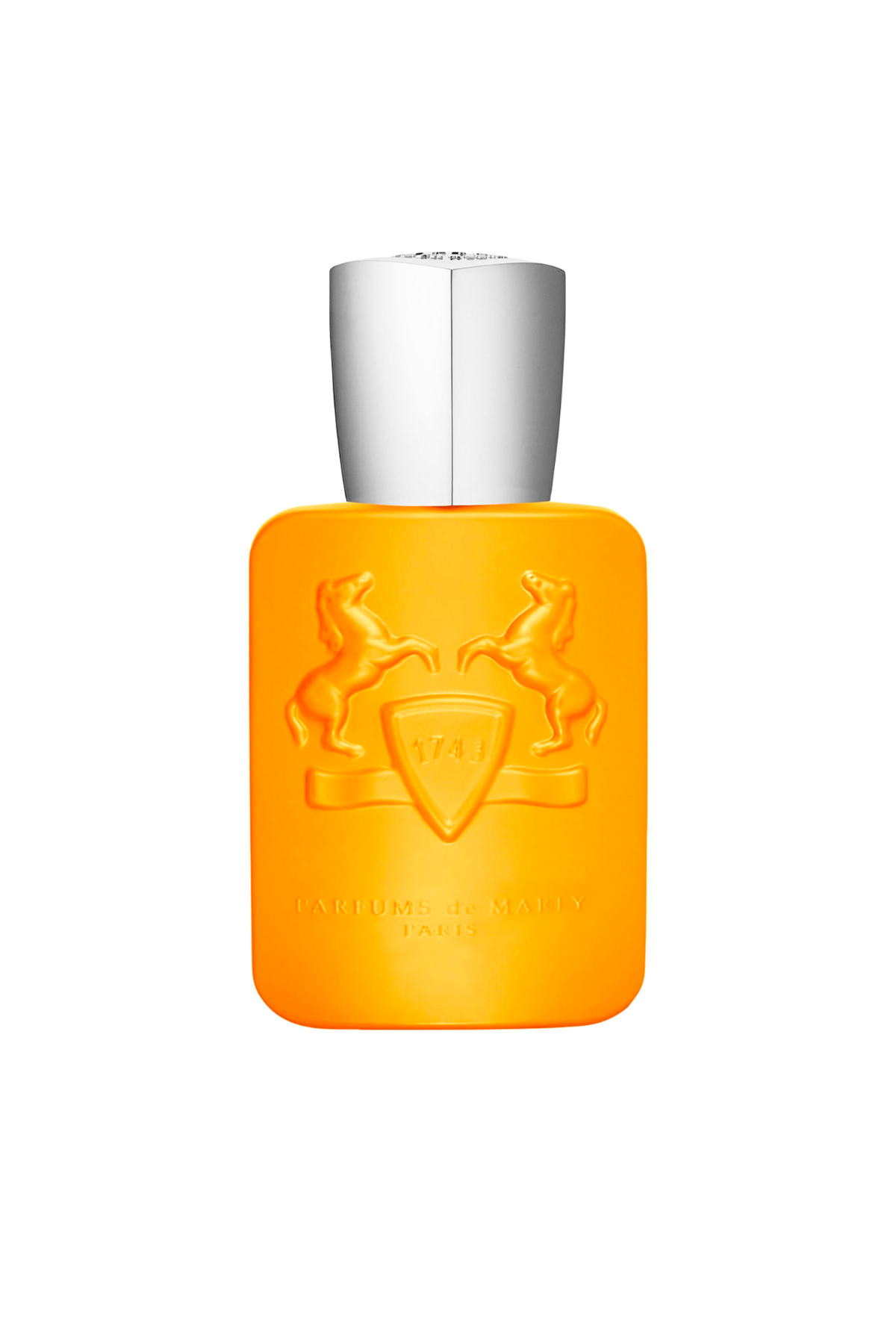
Perseus entered the Parfums de Marly assortment and became a fan favorite—my boyfriend and my sister have both already stolen my bottle. Extremely smooth and blended to a point where it's hard to pick out individual notes (in a good way!), this is an expert's take on citrus. Marie Claire Senior Beauty Editor Samantha Holender even named it the best fruity scent of 2024, stating it strikes the perfect balance of fruity and woody notes for a complex, highly palatable result.
Fragrance Family: Woody Citrus
Key Notes: Bergamot; Ambergris accord; Tonka bean
Size: 4.2 fl oz
What I Love: Zesty; Well-balanced
What I Don't: More expensive than other options
Review for MC: "I don't typically love citrus scents, but this one from Parfums de Marley made me want to dive head-first into the category. It's fresh, slightly warm, and deliciously energizing. Additionally, it's unisex and great for year-round wear." — Ariel Baker, Beauty Writer.
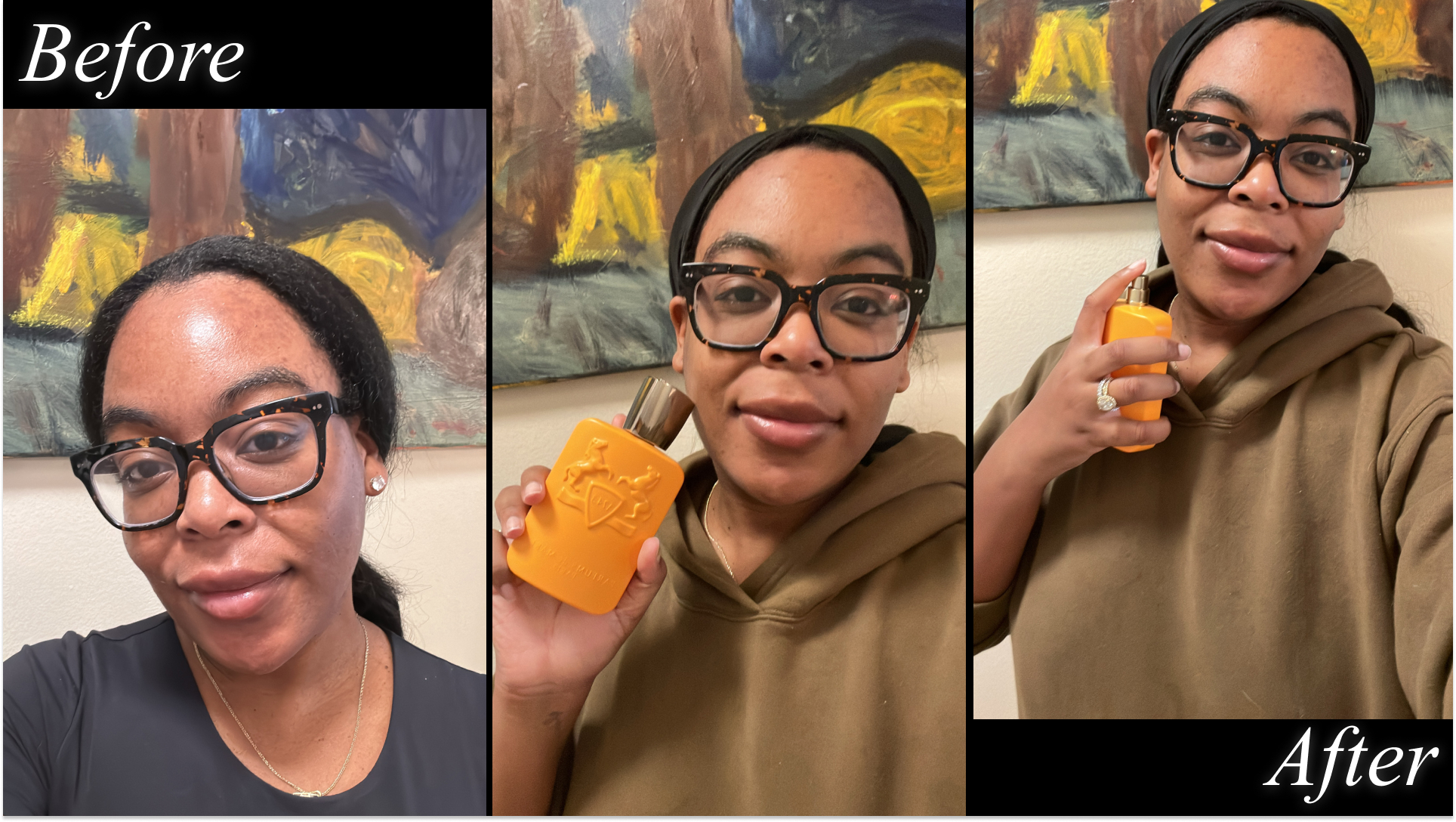
Ariel Baker testing Parfums de Marley Perseus perfume.
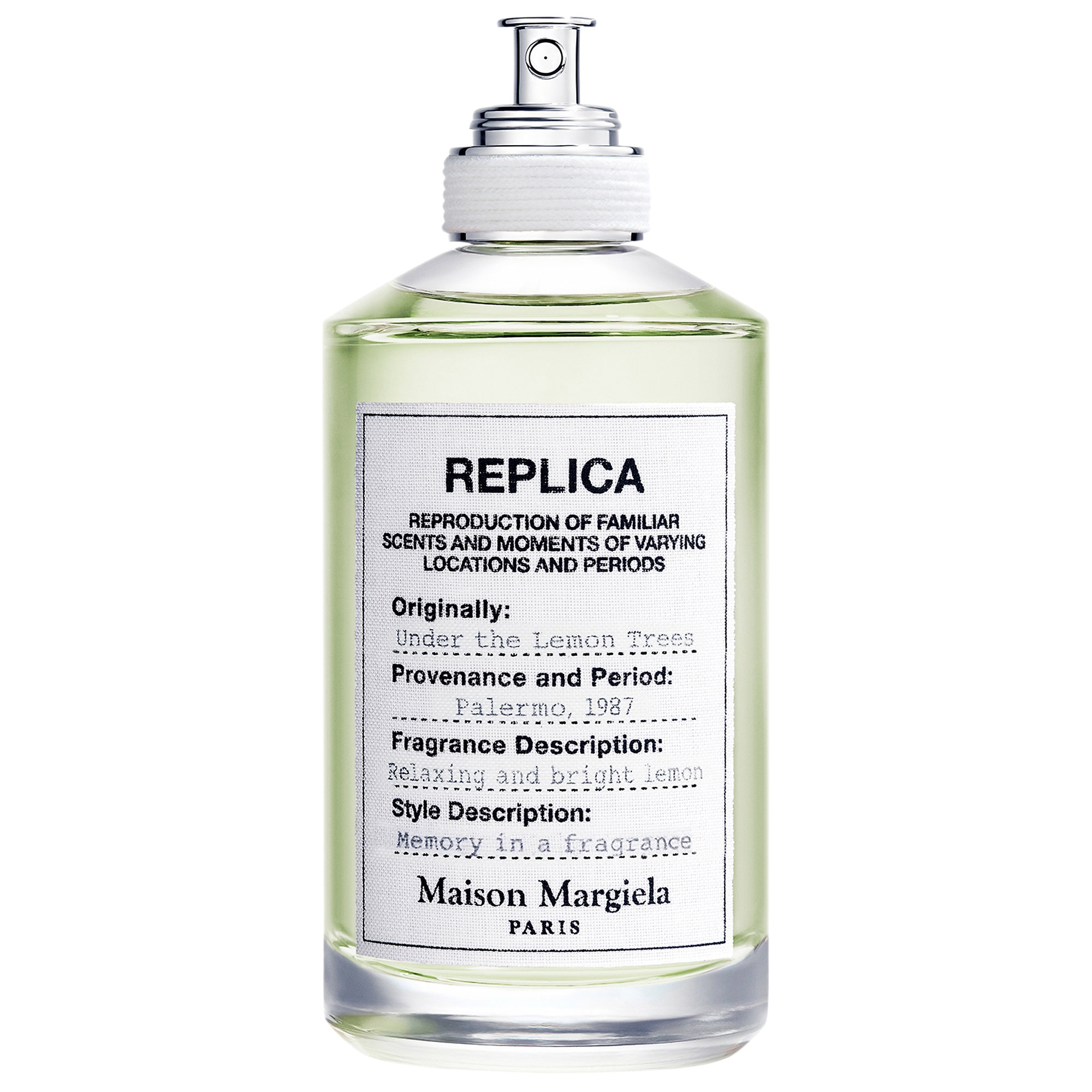
Maison Margiela's fragrance offshoot designs their perfumes to encapsulate a memory or a specific season. This one is reminiscent of the Southern Italian countryside, evoking the scent of a fresh lemon wedge perched on the rim of an ice-cold glass of water. Zesty and fresh, it also features musky base notes, lending it more longevity and great complexity.
Fragrance Family: Fresh Citrus
Key Notes: Lime; Petitgrain; Cardamom; Coriander; Musk; Cedar
Size: 3.4 fl oz
What I Love: Clean; Fresh; Great for summer
What I Don't: Doesn't mix well with other fragrances
Customer Review: "This is one of the first perfumes I ever tried from Maison Margiela, and I remember it like it was yesterday—I was instantly transported to my happy place (my imaginary mansion in the Italian countryside on a tree swing). Since then, I've gone on to explore more from the brand, as well as citrus perfumes from other lines, but there's nothing quite like this one, which is beloved by men, women, editors, and fragrance enthusiasts alike. It's as close to universally appealing as a citrus perfume can get." — Ariel Baker, Beauty Writer
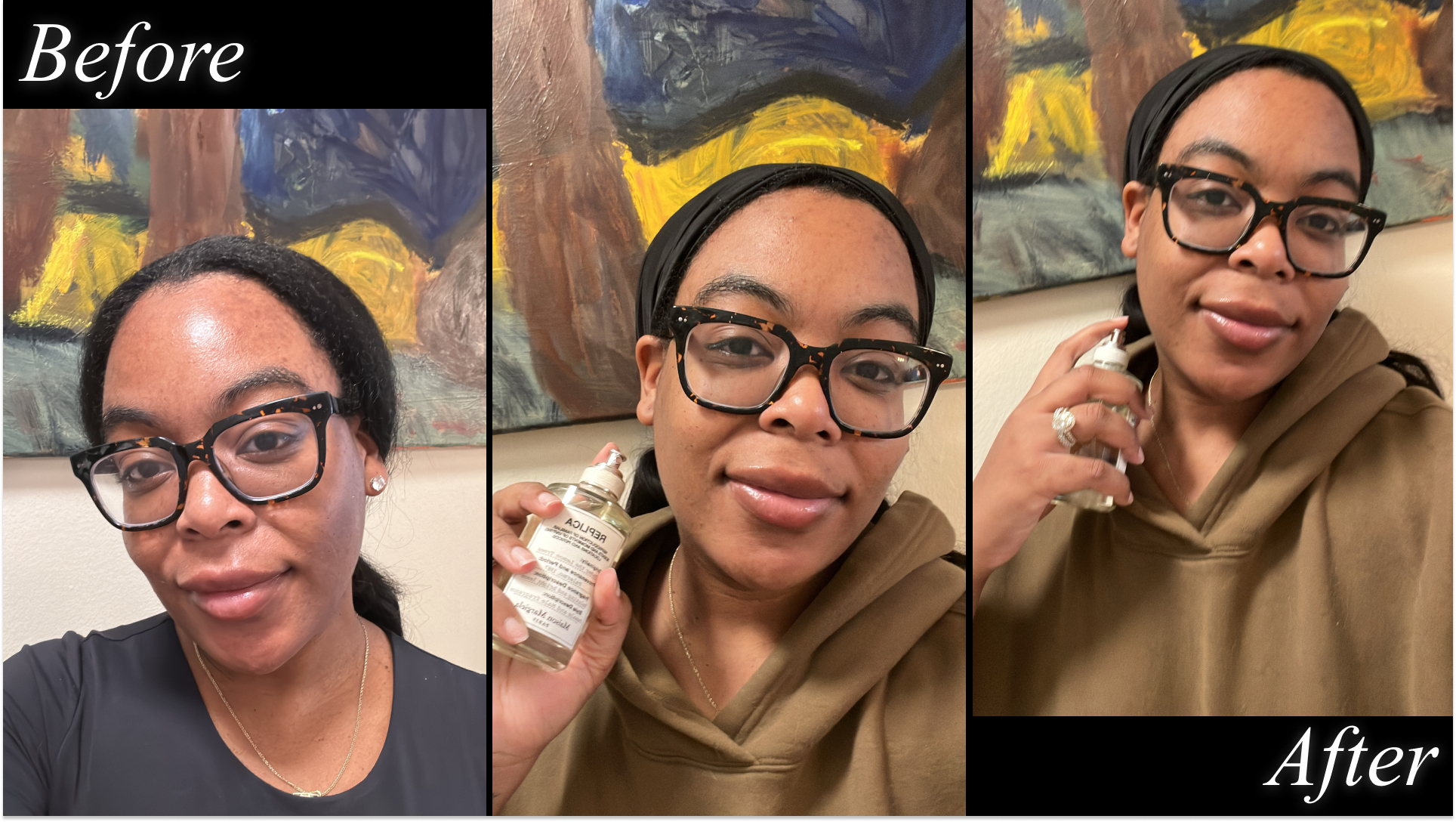
Ariel Baker testing Margiela Under the Lemon Tree Perfume.
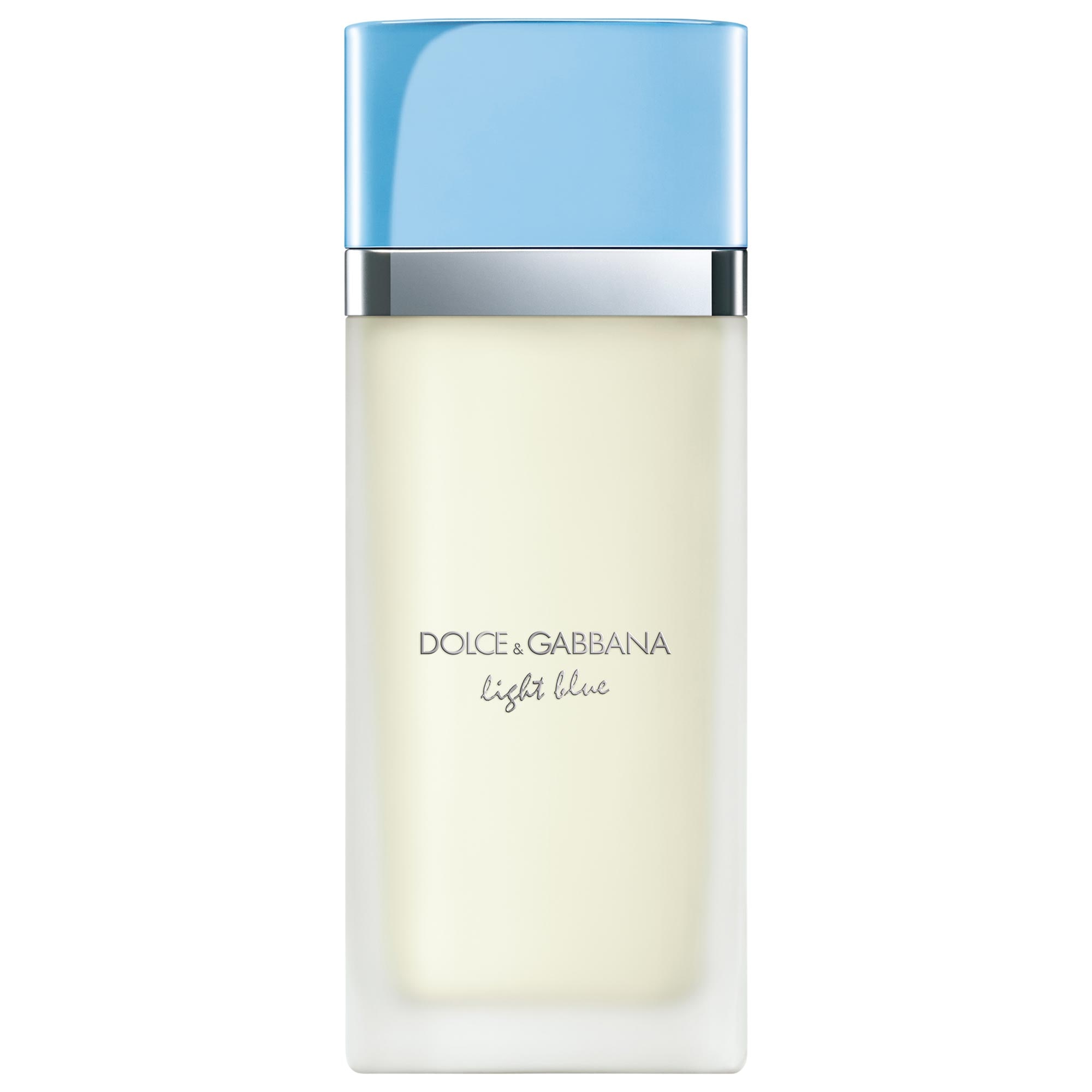
Shall I compare thee to a warm summer day on the Italian coast? Dolce & Gabbana's classic light blue is another of Raguenes' favorite citrus fragrances. Created by Olivier Cresp, the Mediterranean-inspired scent blends the zesty fresh-smelling hint of citrus fruit with delicate florals, eventually leaning into warm woody territory. Because it strikes such a diverse range of notes, it can be worn on any occasion, whether you're heading into the office, taking a walk in the park, or spending a night out on the town.
Fragrance Family: Fresh Citrus
Key Notes: Sicilian lemon; Apple; Cedarwood
Size: 1.7 fl oz
What I Love: Clean; Easy to wear
What I Don't: Slightly bulky packaging
Review for MC: "This is a perfume that is beloved by both my mother and me, which to me signals that it's a generational hit. It smells like a citrus dessert, thanks to the addition of woody and musky notes in the scent. I will always have a bottle of this on hand, especially in the summer months." — Ariel Baker, Beauty Writer
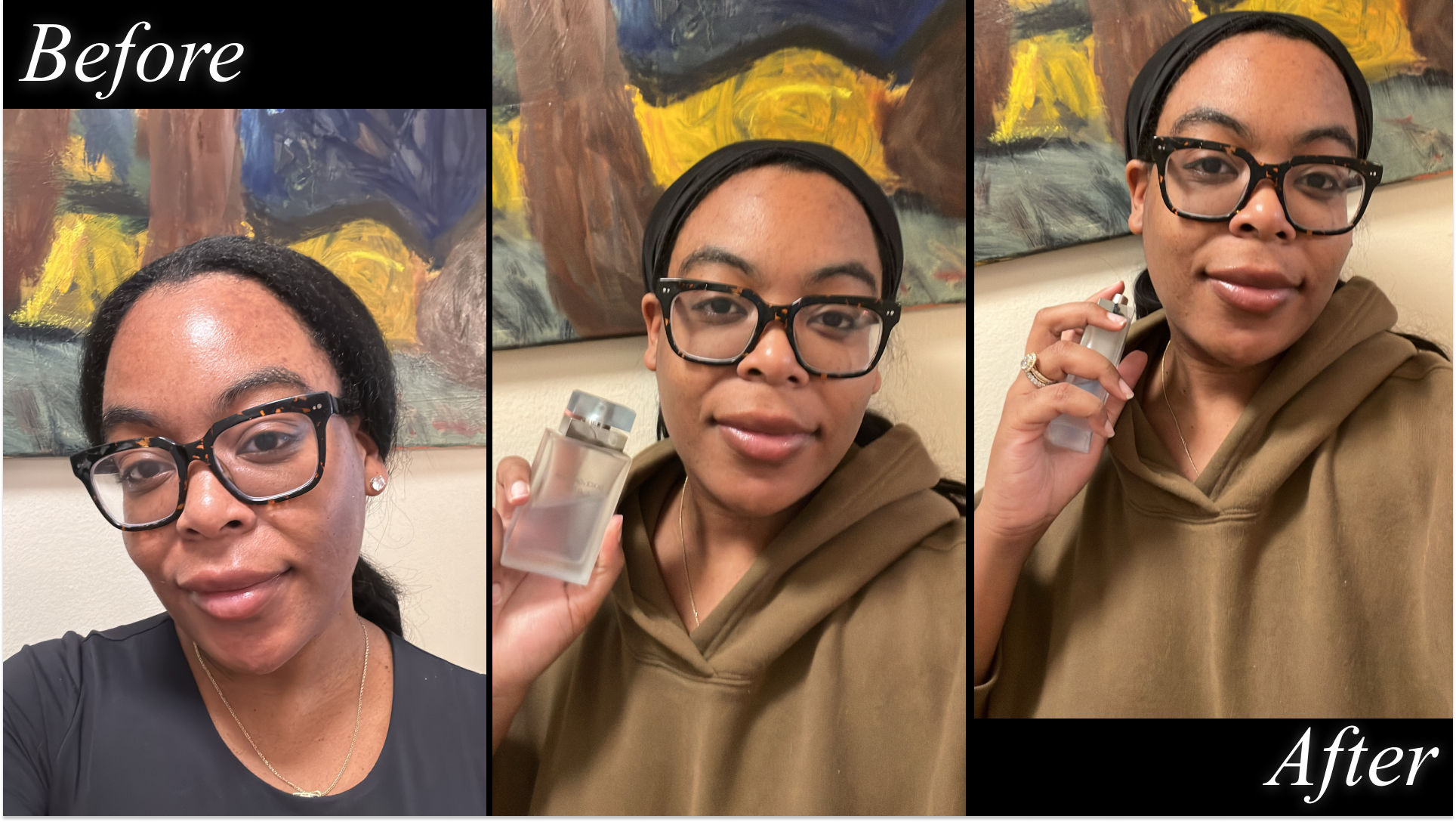
Ariel Baker testing Dolce and Gabbana Light Blue perfume.
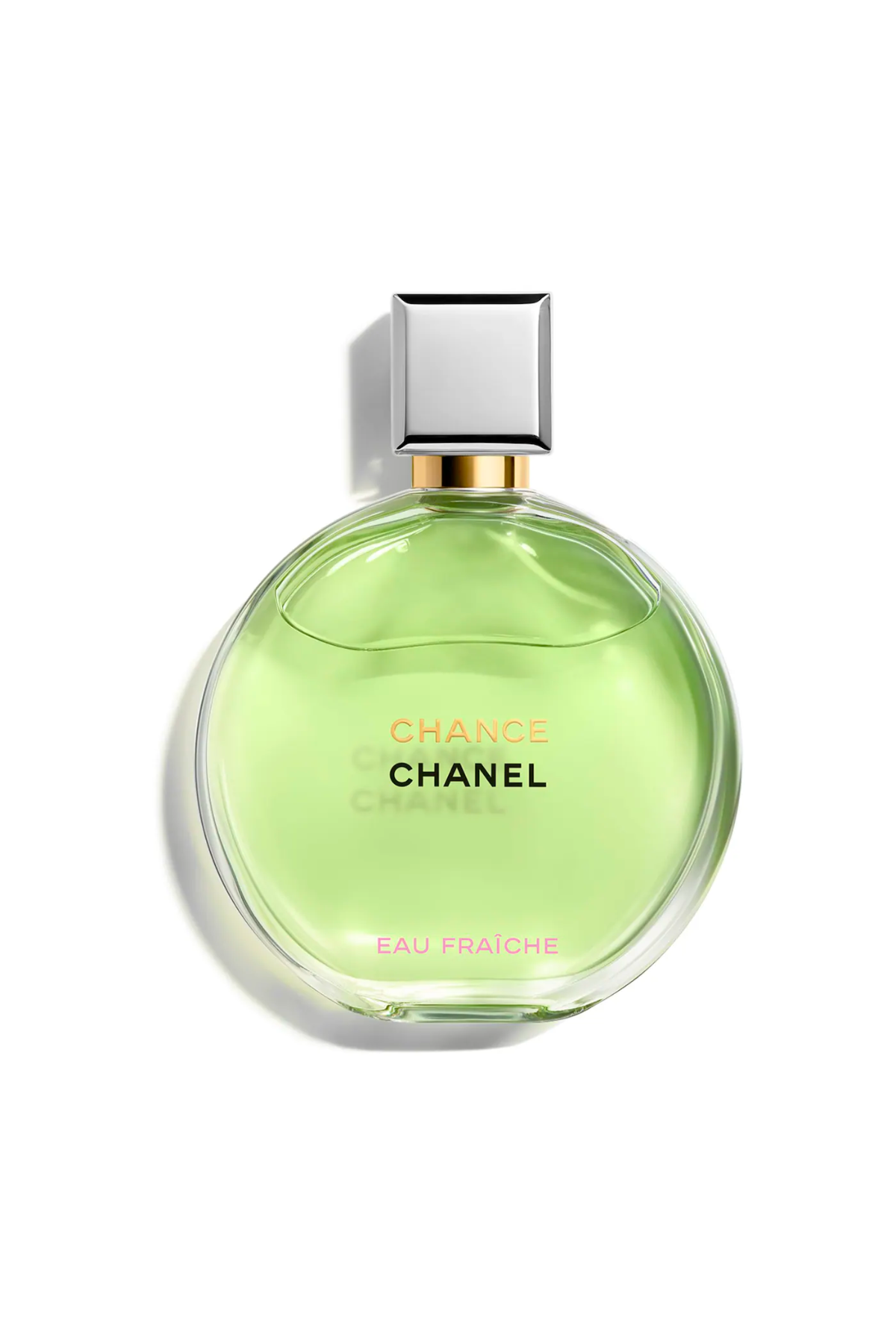
There's just something about spritzing one of the best Chanel perfumes, isn't there? Fresh and sparkling, Chance eau fraîche launched in 2007. Like a walk in the park, it leans into a fantasy of blossoms, sunshine, and just the right amount of greenery while remaining close to home with notes of lemon, cedar, and citron. Once it dries down, you're left with a subtle, complement-worthy sweetness and woodiness. Also noteworthy is its lovely, orange-scented cousin, Coco Mademoiselle.
Fragrance Family: Floral Citrus
Key Notes: Citron; Aldehydes; Jasmine; Amber
Size: 1.2 fl oz
What I Love: Classic; Perfect for summertime
What I Don't: The spray doesn't last very long
Review for MC: "This fragrance smells clean and almost a little like a traditional cologne, which I love. It's not one of those scents that smells strictly like soap (which can be a little boring), but it adds a bit of something extra to my outfits that just puts an extra pep in my step. Bonus: it lasts forever on the skin." — Ariel Baker, Beauty Writer
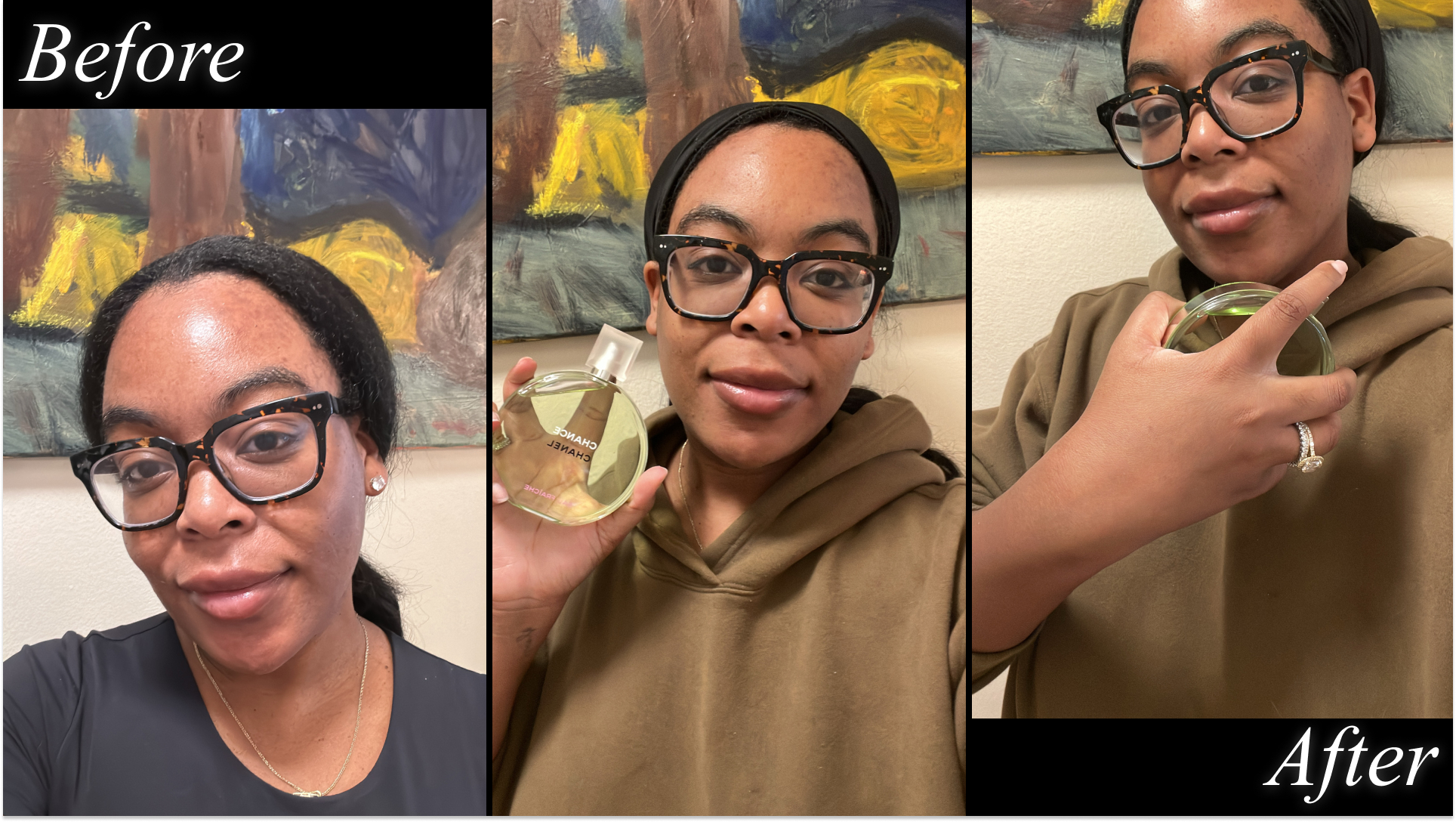
Ariel Baker testing Chanel Chance Eau Fraîche Eau de Parfum Spray.
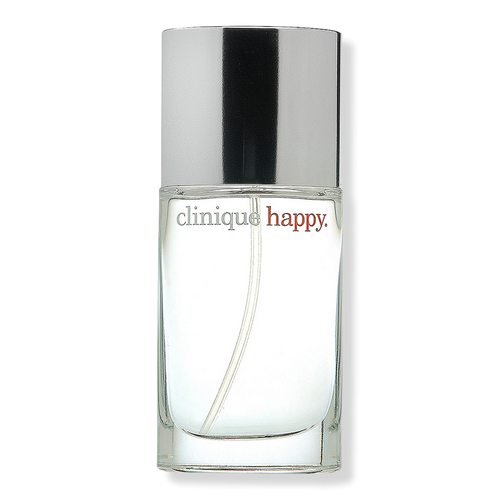
Your first citrus fragrance can absolutely be your forever favorite. A true department store classic, Clinique Happy launched in 1998 and features citrus top notes, floral middle notes, and a touch of musk at the base. It's the ideal entry point for the citrus-curious: a light, bright, Y2K wonder.
Fragrance Family: Fruity Floral
Key Notes: Grapefruit; Bergamot; Morning dew orchid; Hawaiian wedding flower
Size: 3.4 fl oz
What I Love: A true classic; Nostalgic; Beloved across generations
What I Don't: Smells synthetic to some
Review for MC: "When I spray this perfume, I immediately think of my mom, which I love. This scent is equal parts fruity and floral (i.e., her olfactory personality to the letter), but it still manages to be fresh and make me feel super energized and uplifted. This is one of the most classic citrus perfumes on the market, and if you want to safely blind buy one thing from the category, you really can't go wrong with this formula from Clinique." — Ariel Baker, Beauty Writer.
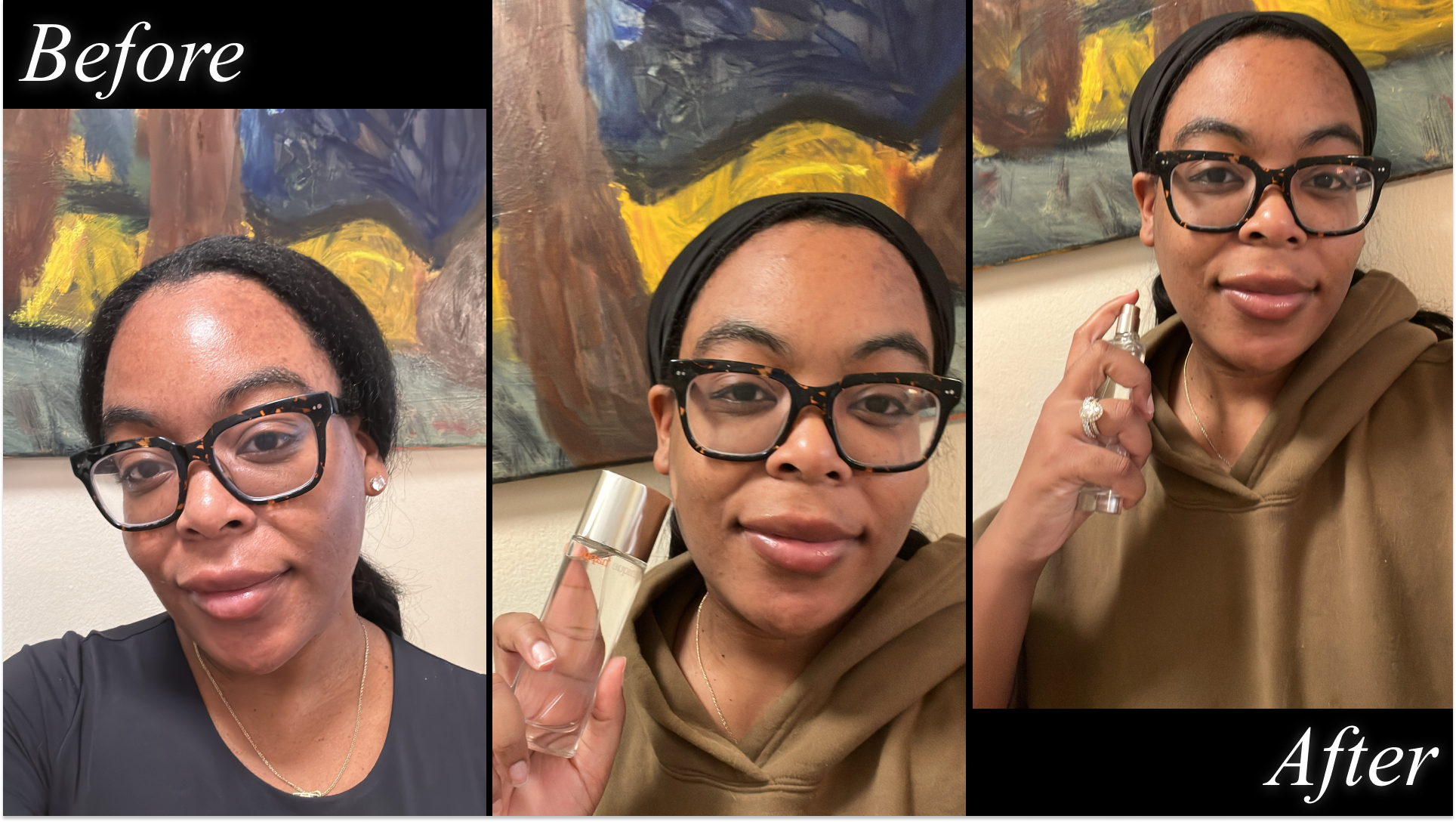
Ariel Baker testing Clinique Happy Eau De Parfum Spray.
Other Citrus Perfumes I Love
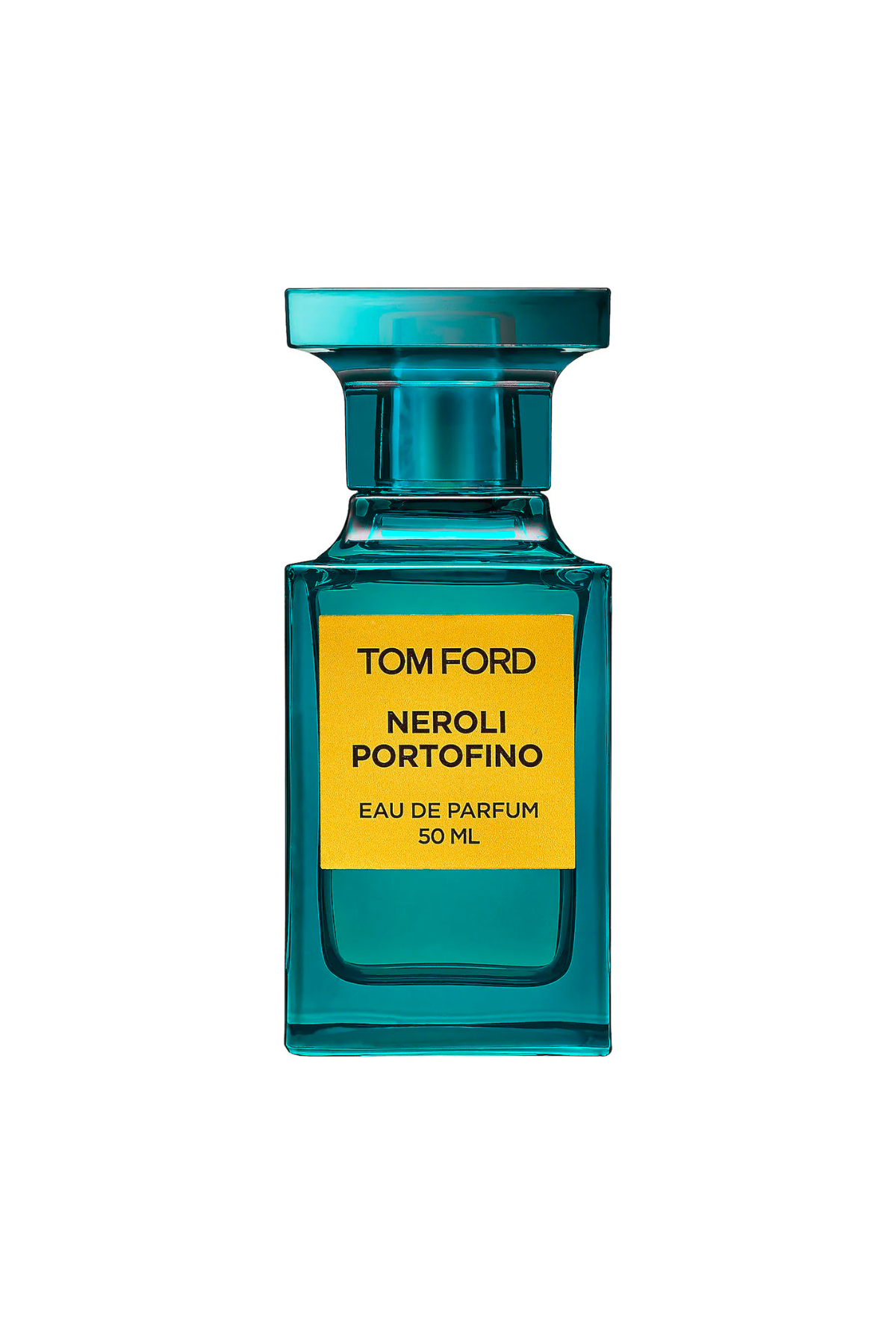
For a fresh, spicy take on citrus, look no further than Neroli Portofino Eau de Parfum, a favorite of Raguenes and one of the best Tom Ford perfumes—period. With top notes of bergamot, mandarin orange, lemon, bitter orange, lavender, rosemary, and myrtle, this unisex fan-favorite's job is 100 percent beach. It's reminiscent of a sunny Italian holiday—you know the Ischia scenes in the Neapolitan novels?—with sunscreen lingering in the air. Moody, sexy, clean, and refined, it's the perfect beach read in a bottle.
Fragrance Family: Floral Citrus
Key Notes: Bergamot; Lemon; Lavender; Neroli; Amber
Size: 1.7 fl oz
What I Love: A warm-weather favorite
What I Don't: More expensive than other options
Review for MC: "This, to me, is a sophisticated take on a classic sunscreen scent. It’s absolutely perfect for a sunny day, and I’ve been wearing it nonstop. It’s not the longest-lasting scent, but I smell it softly on my wrist most of the day. I love love LOVE it and will be wearing it all summer!" — Sephora
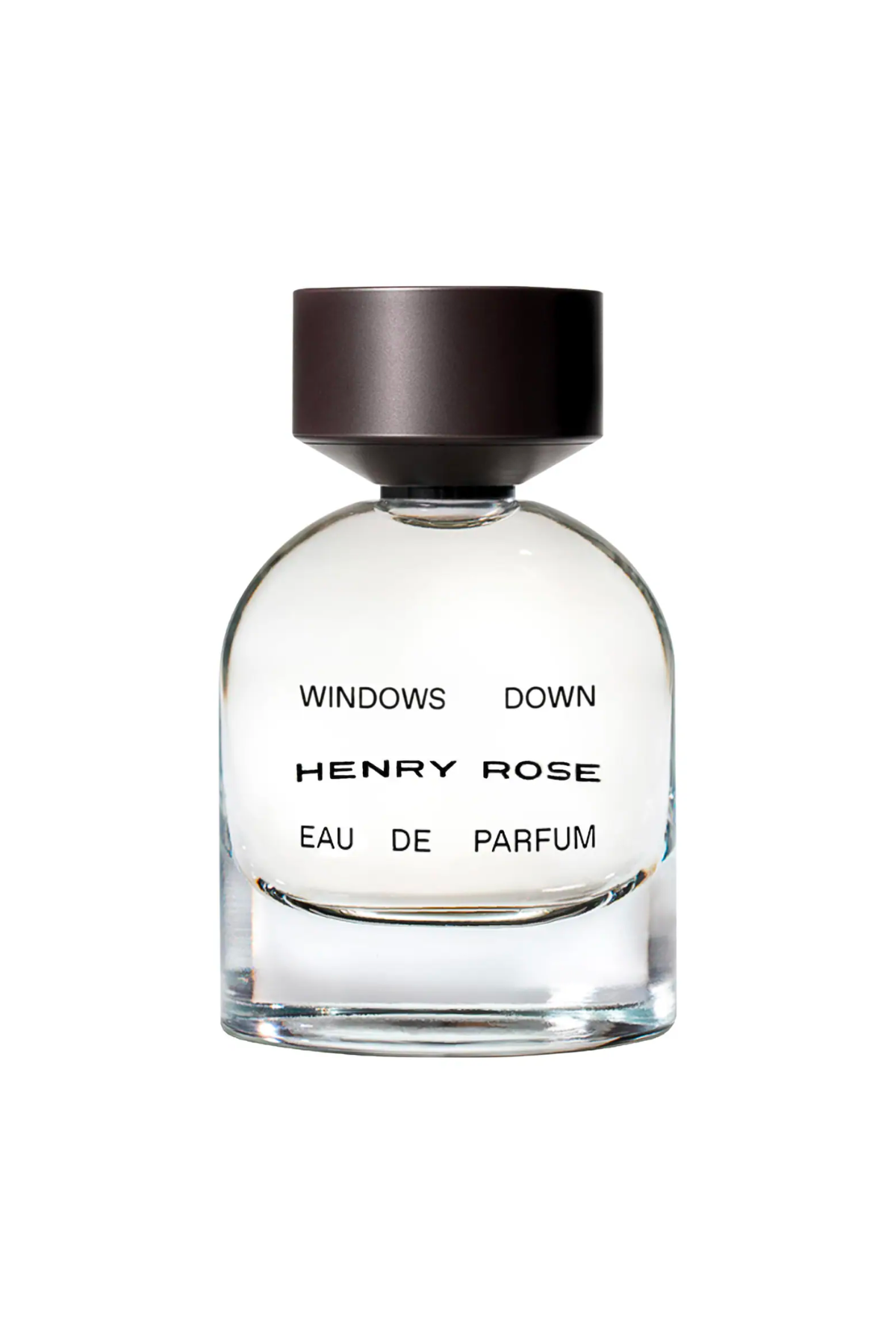
Michelle Pfeiffer's sustainably-sourced fragrance brand is a go-to of mine these days, and I'm happy to report that their citrus take doesn't disappoint. Windows Down features bright notes of grapefruit and bergamot that play with neroli, Earl Grey, jasmine, and musk to craft a mature and sunny scent. Instead, it acts as the perfect background music as you enjoy the scenery. Is this what it feels like to be a puppy with your head out the car window? Associate E-Commerce Editor Brooke Knappenberger agrees, attesting that this scent balances just the right amounts of sweetness and freshness.
Fragrance Family: Fresh Citrus
Key Notes: Grapefruit; Orange blossom; Musk
Size: 1.7 fl oz
What I Love: Sustainable brand; Refreshing and uplifting scent
What I Don't: Doesn't last very long
Customer Review: "This fragrance is happiness and sunshine and perfect sunny summer days. It’s clean with a citrus note that just makes you feel good when you wear it. Packaging is also classy, simple & beautiful. Definitely can be unisex." — Sephora
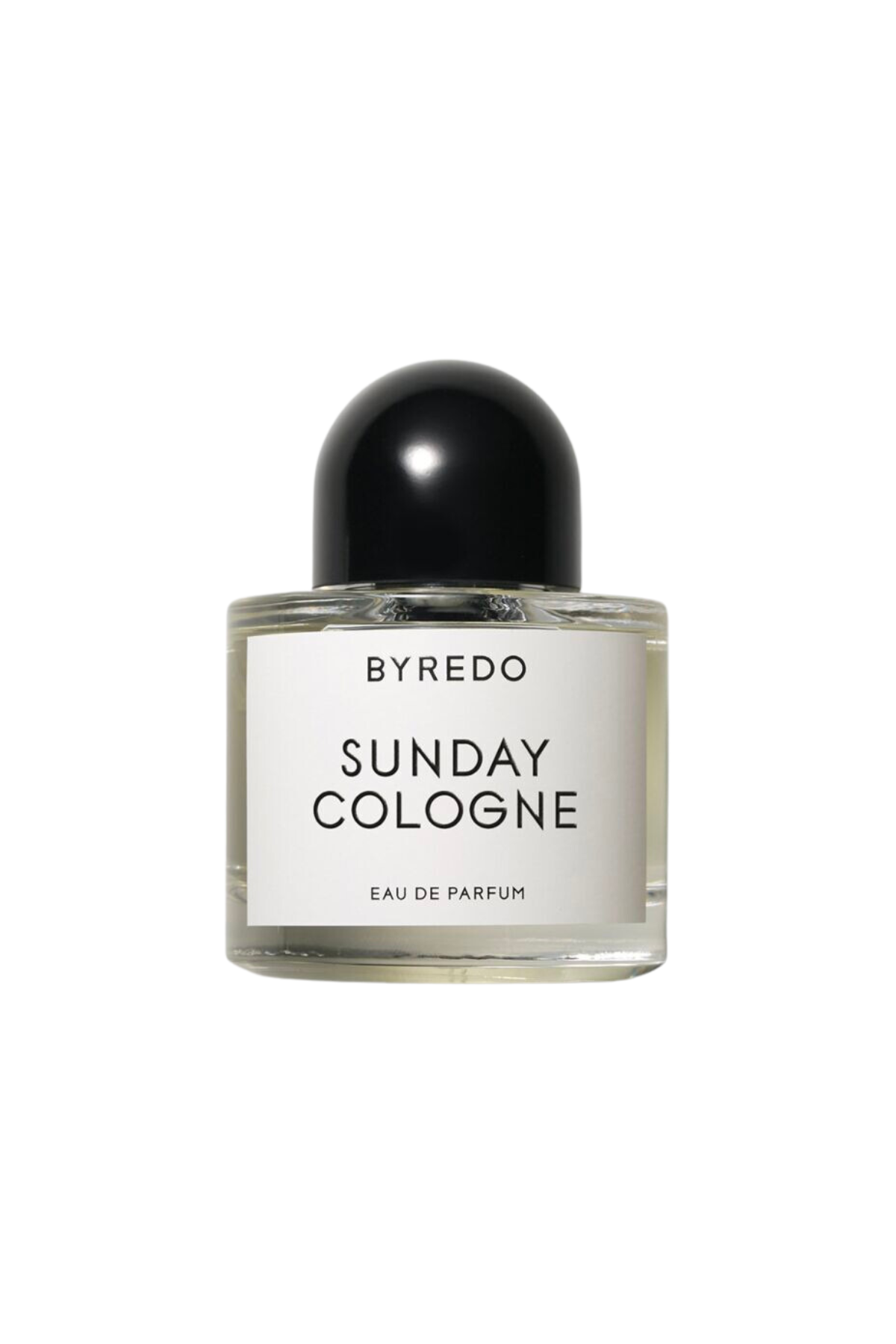
Byredo describes their aromatic Sunday Cologne Eau de Parfum as "polite and poised like a sharp side part and a taper cut." Giving barbershop and a little Sunday scaries moodiness with its spice-forwardness, it's a distant cousin to gypsy water, another famous—and light!—woody citrus by the brand. Still, I think this bergamot number deserves applause for its crispness.
Fragrance Family: Woody Aromatic Citrus
Key Notes: Bergamot; Cardamom; Incense; Patchouli
Size: 1.7 fl oz
What I Love: Well-balanced; Crisp
What I Don't: Not the most long-lasting
Customer Review: "Lovely, soft, calming stuff. Perfect for a relaxing Sunday afternoon. A classy, easy-to-wear, unisex fragrance. It's not going to be a night out, date night fragrance, but it's not intended to be. Exactly what it says on the bottle." — Fragrantica
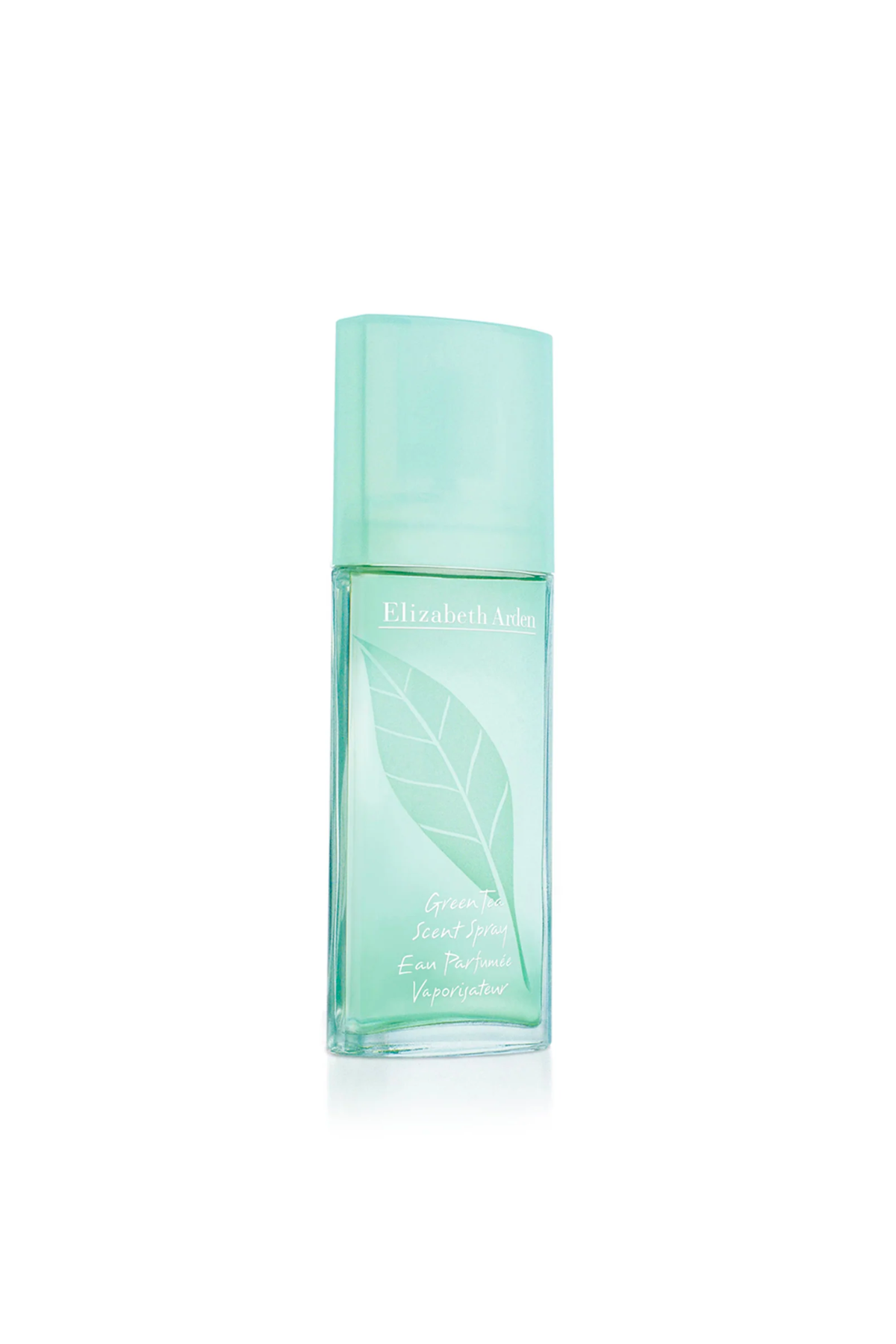
Fun fact: the legendary Francis Kurkdjian was the nose behind Elizabeth Arden's iconic zesty Green Tea fragrance, which launched in 1999 and recently came back into the zeitgeist thanks to TikTok. With top notes of lemon, bergamot, mint, orange, peel, and rhubarb, this scent was best described by one of my favorite beauty writers, Kara Nesvig, as zingy, like McDonald's Sprite.
Fragrance Family: Fresh Floral Citrus
Key Notes: Bergamot; Lemon; Green Tea; Musk
Size: 3.3 fl oz
What I Love: A recognizable classic; Affordable; Refreshing
What I Don't: Weak longevity and sillage (even for a citrus!)
Customer Review: "Have used this product for several years and love the light, clean tones. Never fails. Get many compliments." — Ulta
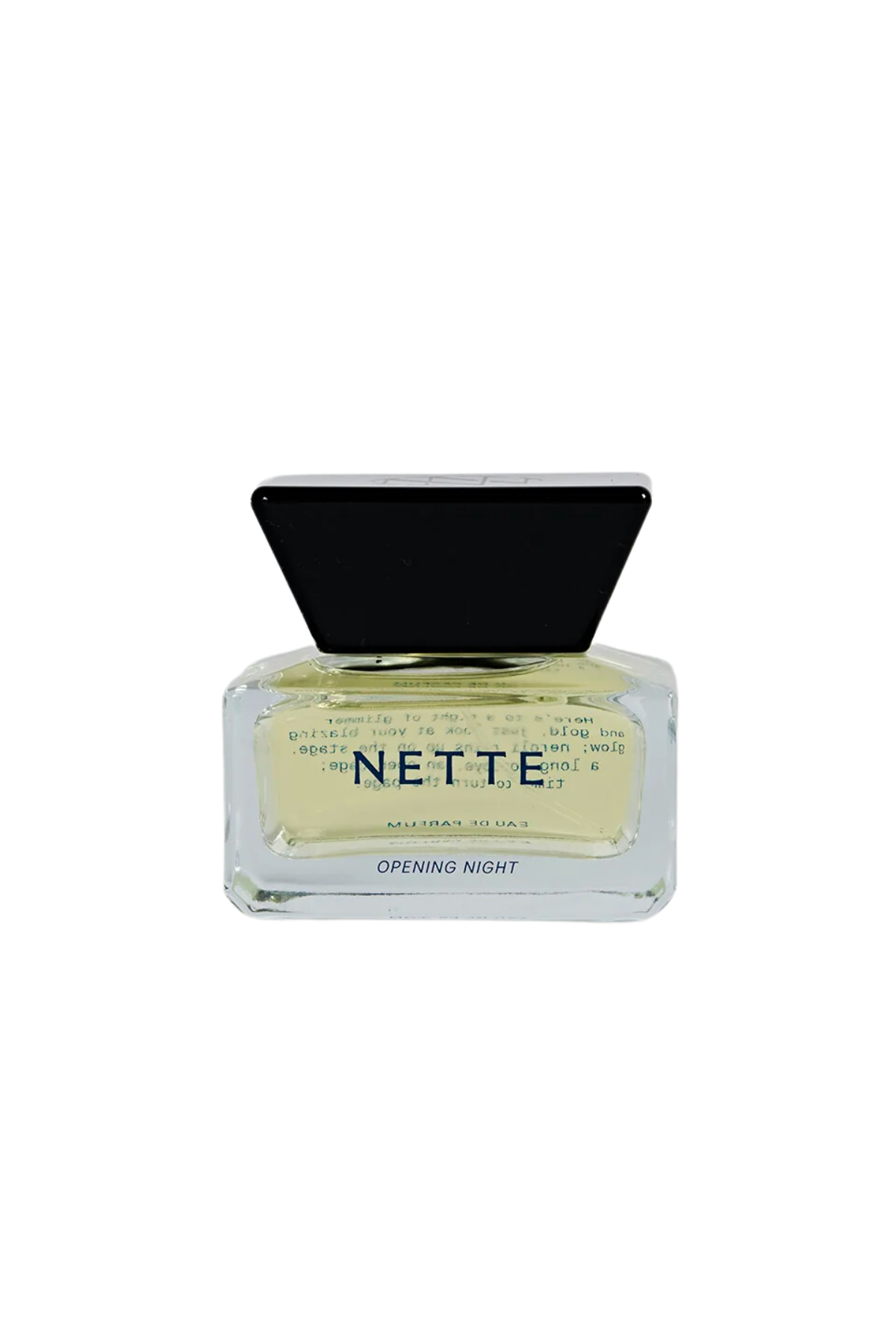
This floral-centered, layerable fragrance features touches of bergamot and grapefruit before settling into a layer of amber, vanilla, and vetiver on the skin. While there's a definite sweetness to it, it's humble and grounded, and the sensual scent of amber pervades from its first spritz to its lingering remnants.
Fragrance Family: Amber Citrus
Key Notes: Bergamot; Cardamom; Neroli; Verbena; Amber; Vanilla
Size: 1.7 fl oz
What I Love: Layers well; Neroli comes through beautifully
What I Don't: Bulky bottle for traveling
Customer Review: "This is a beautiful scent! The opening is a little harsh, but it only lasts a few minutes, then it settles into this beautiful neroli scent that's green and a little bit spicy. I bought the Nette sample pack recently and I'm so excited that it came with bigger 3ml sprays because I will definitely be wearing this one." — Fragrantica
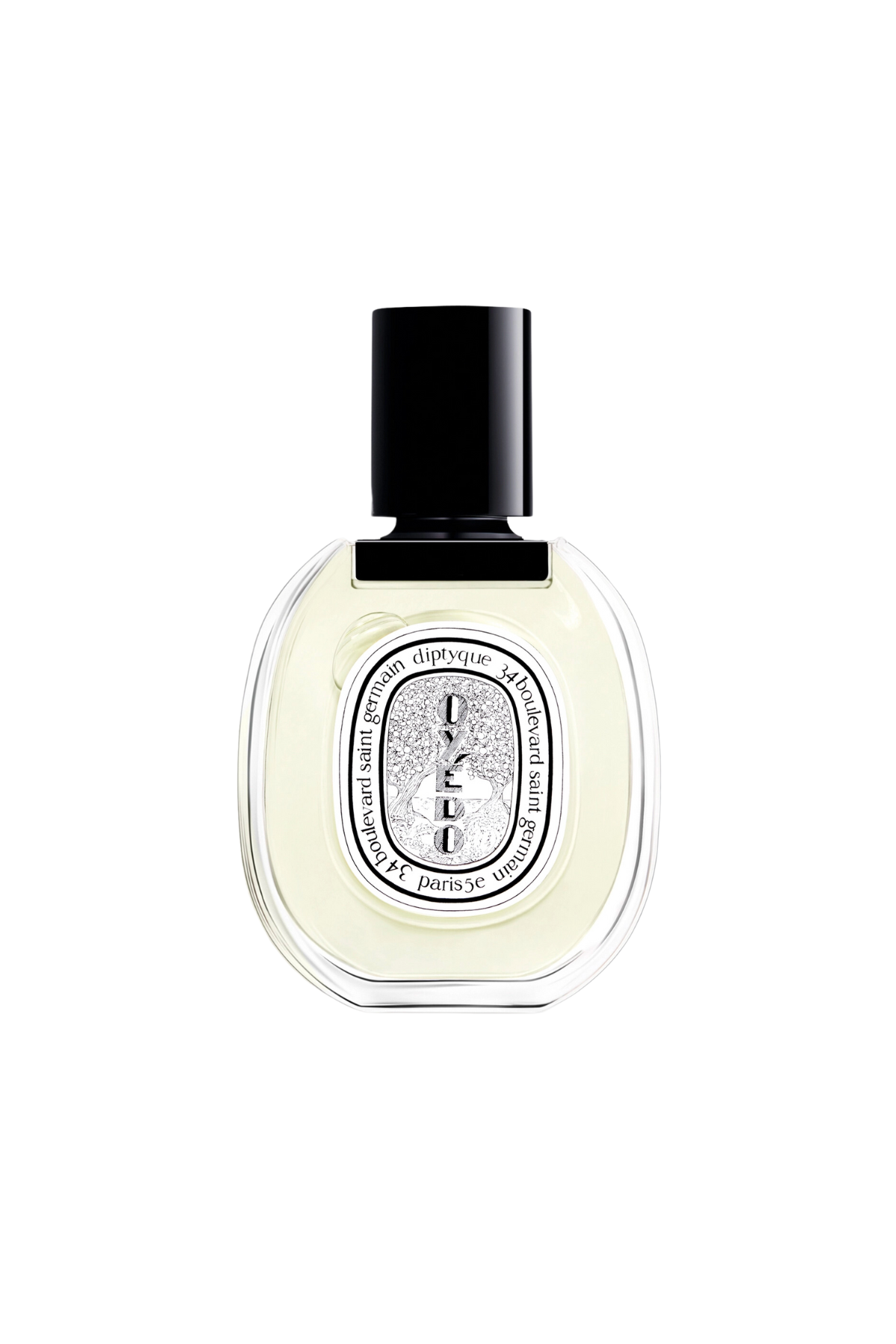
Diptyque has a number of lovely citrus scents in its repertoire, but none strike me as much as Oyédo. Launched in 2000, this candy-like perfume (there's that early aughts sensibility again) features a slight creaminess, with notes of yuzu, raspberry, and thyme. Instead of heading to the Mediterranean like so many citrus scents, Oyédo was inspired by Japan’s ancient imperial city, Edo.
Fragrance Family: Aromatic, fruity citrus
Key Notes: Grapefruit; Yuzu; Thyme; Cedarwood
Size: 3.4 fl oz
What I Love: Unique; Smells like candy
What I Don't: May be too sweet for some
Customer Review: "I love this perfume a lot. It is one of my top five perfumes that I feel is a classic and will continue to be a classic in the next 20 years. Smells nice and fresh. Not overpowering and lasts for a long time" — Nordstrom
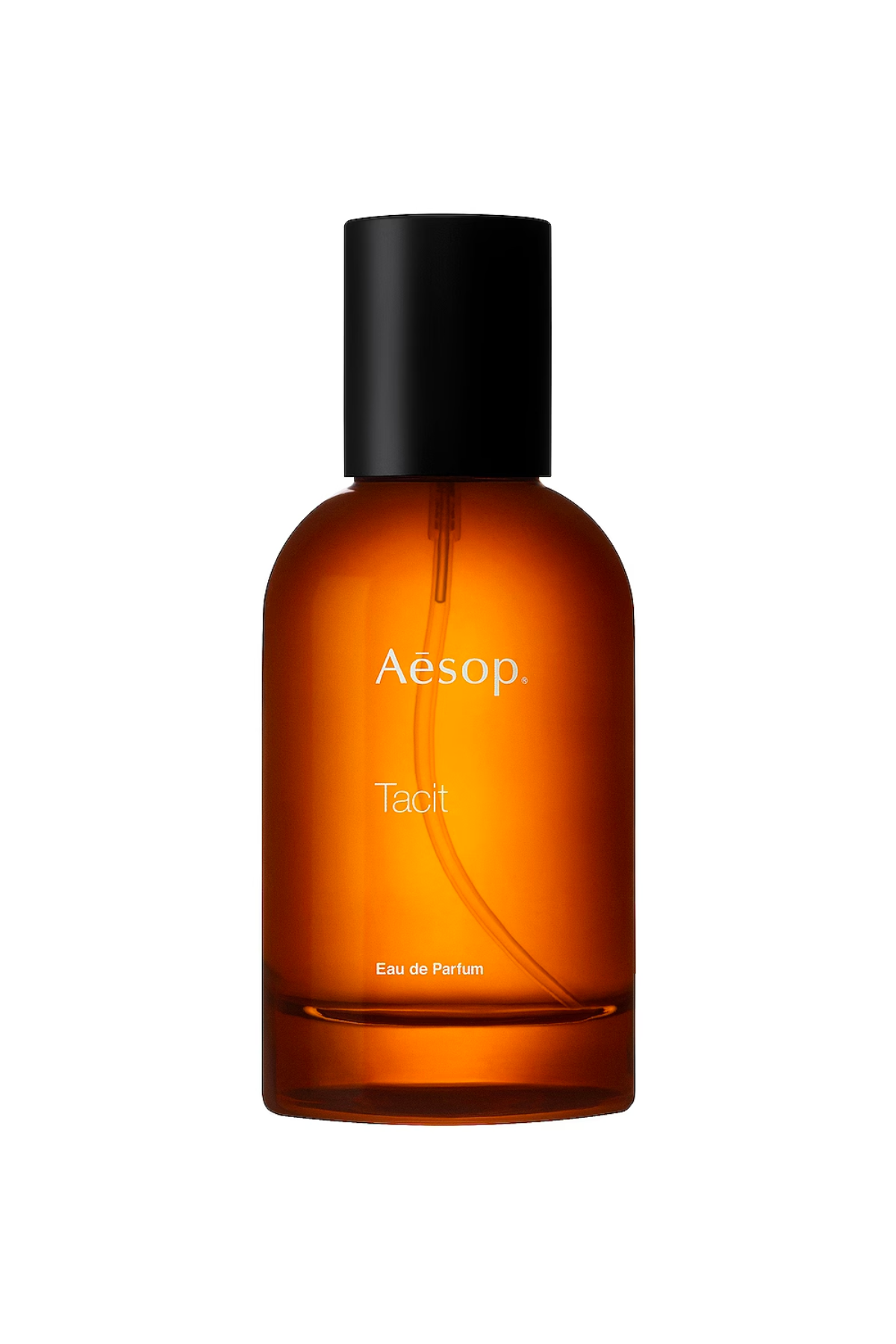
As you might guess from its amber bottle, Aesop's Tacit is a wealth of woodiness, much like many of the brand's other offerings. The unisex scent was born from two key inspirations: traditional masculine colognes and the Mediterranean coast's lush vegetation.
Fragrance Family: Aromatic Citrus
Key Notes: Yuzu; Basil; Cloves; Vetiver
Size: 1.7 fl oz
What I Love: Woody; Reminiscent of a day at the spa
What I Don't: May be too masculine for some
Customer Review: "Love, love, love this perfume! I always get compliments when I wear it. People ask me what I am wearing and comment on its fresh scent. I think it has a woodsy, natural scent, and that it is just wonderful." — Nordstrom
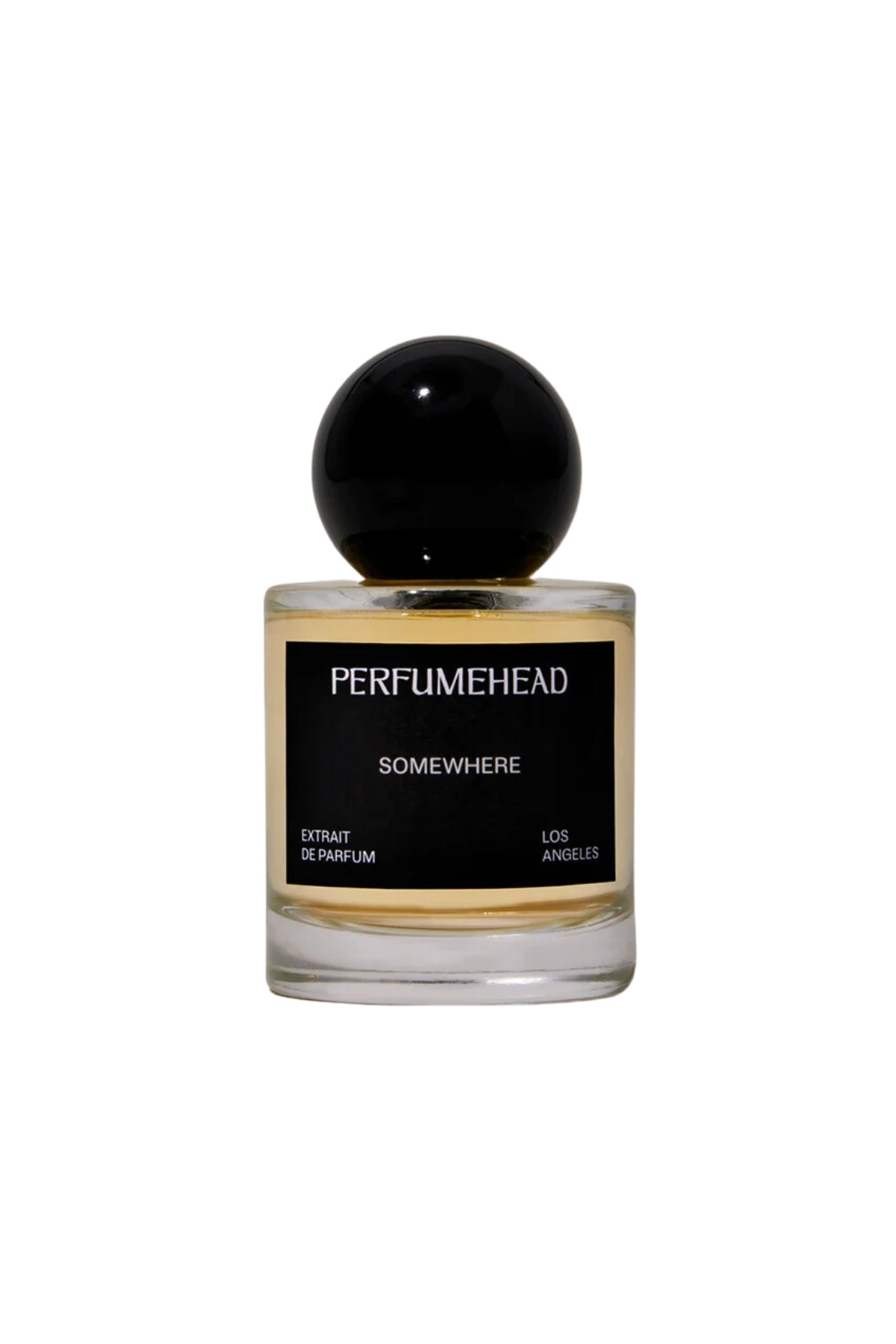
Listen, this is not a budget fragrance option. But if you're looking for a clean, intriguing, fancy citrus scent, this is it. Crafted to capture "the feeling of sunbathing in a hidden tropical oasis," Somewhere features top notes of dewy palm leaves, bergamot, and blood orange. Fun fact: it was also inspired by Sofia Coppola's 2010 film Somewhere.
Fragrance Family: Green Floral
Key Notes: Neroli; Galbanum; Orris; Patchouli; Oakmoss
Size: 1.7 fl oz
What I Love: Genderless; Intriguing; Lasts very long
What I Don't: Overpowers if you're fragrance layering
Customer Review: "The smell left behind on my shirt and jacket from the day before is just fantastic—Such a pleasant, neroli-prominent floral which is not too strong. It feels tropical without being beachy. On the skin, the scent lasts about 12 hours or so." — Fragrantica
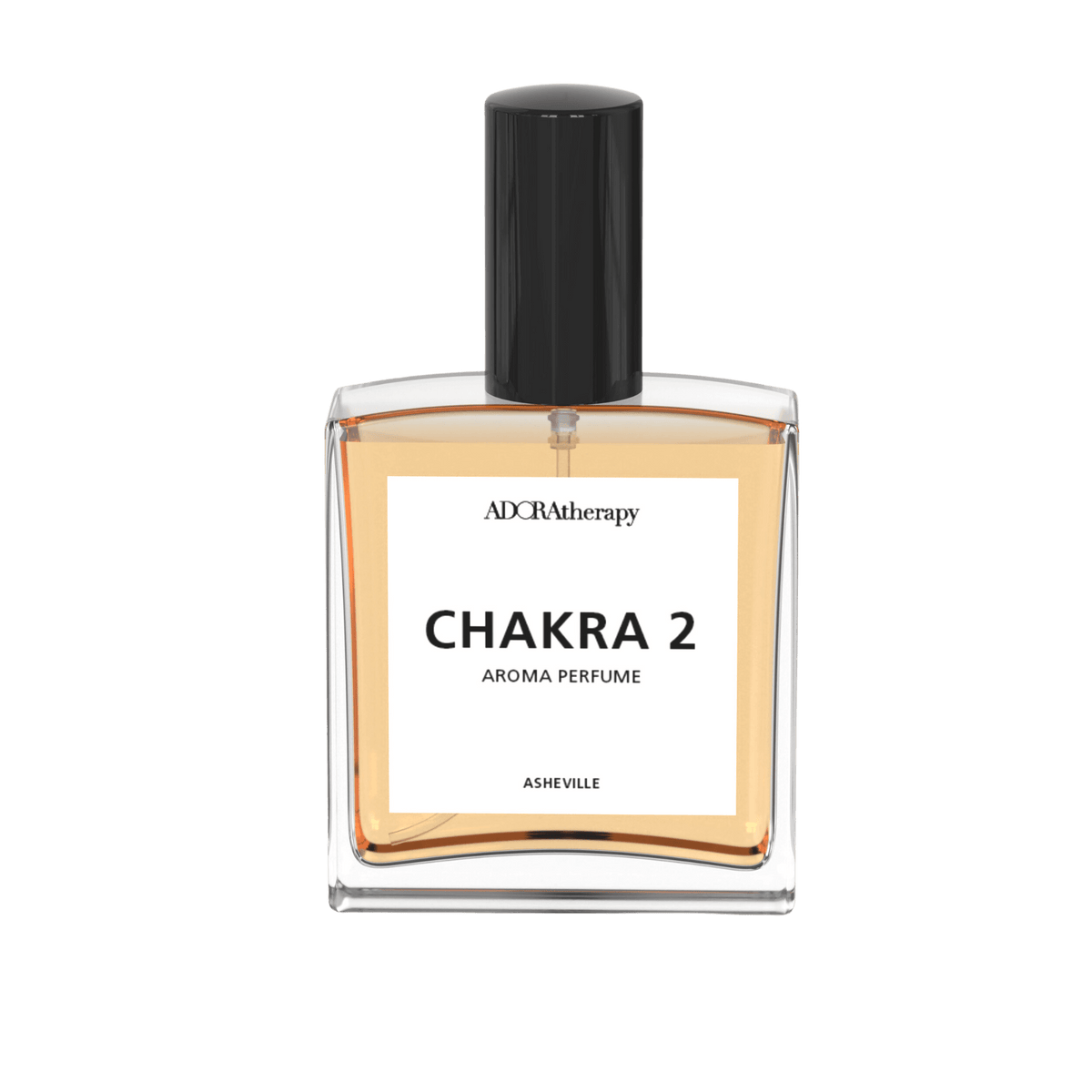
Call me woo-woo, but I love the marketing of this perfume. It's meant to activate the sacral chakra, inspiring greater openness and creativity. Its standout note is blood orange, which is invigorating and perfect for a bright summer day. Because it's so simple, it has an overall subtle impact that makes it perfect for layering with another, stronger scent. Adoratherapy's perfumes are alcohol-free, too, so I'm never afraid of drying out my skin when I spray this on.
Fragrance Family: Floral Citrus
Key Notes: Blood orange; Ylang ylang; Jasmine
Size: 3.4 fl oz
What I Love: Alcohol-free; Energizing; Great for layering
What I Don't: May be too subtle to be worn on its own
Customer Review: "Smells great. I love the more natural ingredients. Longer lasting than I expected, which is a bonus." -Adoratherapy
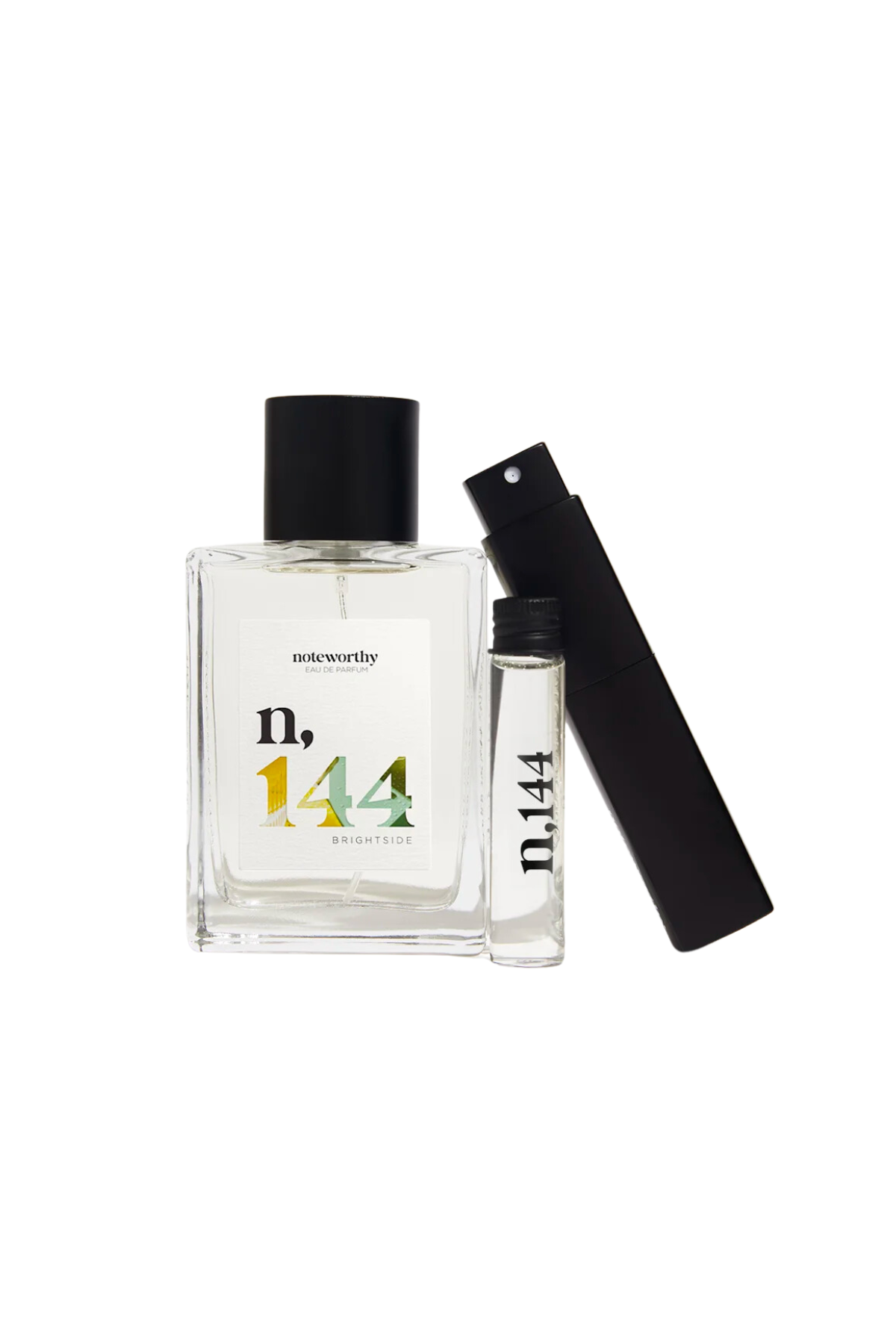
If you're a vanilla lover who wants to dip into the world of citrus, Noteworthy's n,144 is the scent for you. Opening with juicy citrus and delicate lemon blossom, it ultimately settles into a heavier, creamy vanilla. It's like vanilla pound cake with a little lemon zest—a treat to sweeten up your citrus fragrance wardrobe.
Fragrance Family: Vanilla Citrus
Key Notes: Italian citrus; Lemon blossom; Musk; Vanilla
Size: 3.3 fl oz
What I Love: Sweet; A citrus for vanilla lovers
What I Don't: May be too sweet for some
Customer Review: "This smells like slurping lemondrop slushie topped with a generous dollop of vanilla whipped cream while laying in a meadow in spring. It is sweet with a dash of tart, light, and creamy. While it is both citrusy and sweet, the vanilla notes tend more toward the sweet side, about 65% warm sweet and 35% fresh tart floral. I haven't worn this enough to comment thoroughly on sillage and staying power, but I imagine this may make a good layering scent to lightly sweeten and brighten another scent." — Fragrantica
What to Look For in a Citrus Perfume
- Notes: The citrus family includes notes like lemon, lime, orange, bergamot, grapefruit, tangerine, and clementine. "My favorite citrus notes are neroli, orange blossom, and citron. Fresh green neroli and soft, honey-like orange blossoms are perhaps my bread and butter in perfume," says Huber. "Citron is also amazing because it’s a less familiar, yet very tart and refreshing note that brings a lot of green and has a lot of depth." The crisp, floral bergamot, meanwhile, adds an almost "water-like" quality to the fragrance with its volume, light, and energy.
- Wear: Nwasike says that citrus notes are naturally volatile, meaning they don't last long on the skin. "Hence the reason perfumers use them as a top note in fragrance," she adds. "Their fresh, invigorating scent captures your attention to prepare you for an exciting olfactory experience."
- Layering: Citrus layers well with a number of other fragrance families, including floral notes, woody notes like cedarwood, vetiver, oud, and sandalwood. "Woody notes add depth and tenacity to volatile citrus notes, while the citrus notes cool intense woody notes to create a beautiful contrast," shares Nwasike. Floral notes like jasmine and tuberose, and fruity notes like peach, mango, berry, and apple also go great together. "It's almost like you are drinking a chilled glass of juice," Nwasike adds.
Citrus Fragrance Guide
Contrary to what you'll find in a typical fruit bowl, there's more to citrus than lemons, limes, grapefruits, and oranges. "The citrus fragrance family is broad and consists of citrus fruits, flowers, and trees," says Nwasike. While all share a common freshness, these different notes offer perfumers a wide and engaging palette in their artistry. Here's a look at some of the most popular citrus notes, with information courtesy of the fragrance expert.
- Bergamot: Grown in southern Italy, the perfumer's favorite bergamot fruit has a rich scent that is at once fresh, floral, and spicy. According to Nwasike, it's also popular in aromatherapy because of its calming and relaxing effects.
- Lemon: Sharp and acidic, lemon notes have a clean, energizing impact when included in fragrances.
- Grapefruit: Nwasike calls bold, juicy grapefruit the most bitter citrus note, adding that it's very volatile. Thus, it must be paired with other, more calming elements so that the resulting perfume isn't overpowering.
- Neroli: Neroli oil is produced by the bitter orange tree blossom. It has a sweet, spicy, and herbaceous fragrance profile.
- Mandarin: Sweeter than the humble orange, Nwasike says mandarin is "a mood booster that evokes the essence of sunshine."
- Petitgrain: Another product of the bitter orange tree, this time extracted from its leaves and green twigs, the herbaceous and slightly floral petitgrain is similar to neroli and can have an aromatic or green scent depending on its pairing.
What Are Citrus Perfumes?
Now that you're well aware of the notes that typically make up the formulas, you may still be wondering: What exactly constitutes a citrus perfume? "Typically, these formulations showcase those bright, juicy notes from lemons, oranges, and their cousins," co-founder of Noteworthy Scents, Ashley Boyce, says. "They're the kind of perfumes that instantly perk you up—it's a similar feeling to splashing cold water on your face or biting into a fresh orange."
Citrus perfumes aren't the most long-lasting. In fact, Boyce refers to them as "flighty," meaning that they disappear rather quickly. That being said, traditional citrus notes tend to be paired with others to increase longevity. "I always check how the citrus is balanced," Boyce says. "Is it cut with something green? Warmed up with vanilla? Deepened with woods? These combinations keep a citrus fragrance from smelling like you just cleaned your kitchen and then disappearing immediately after."
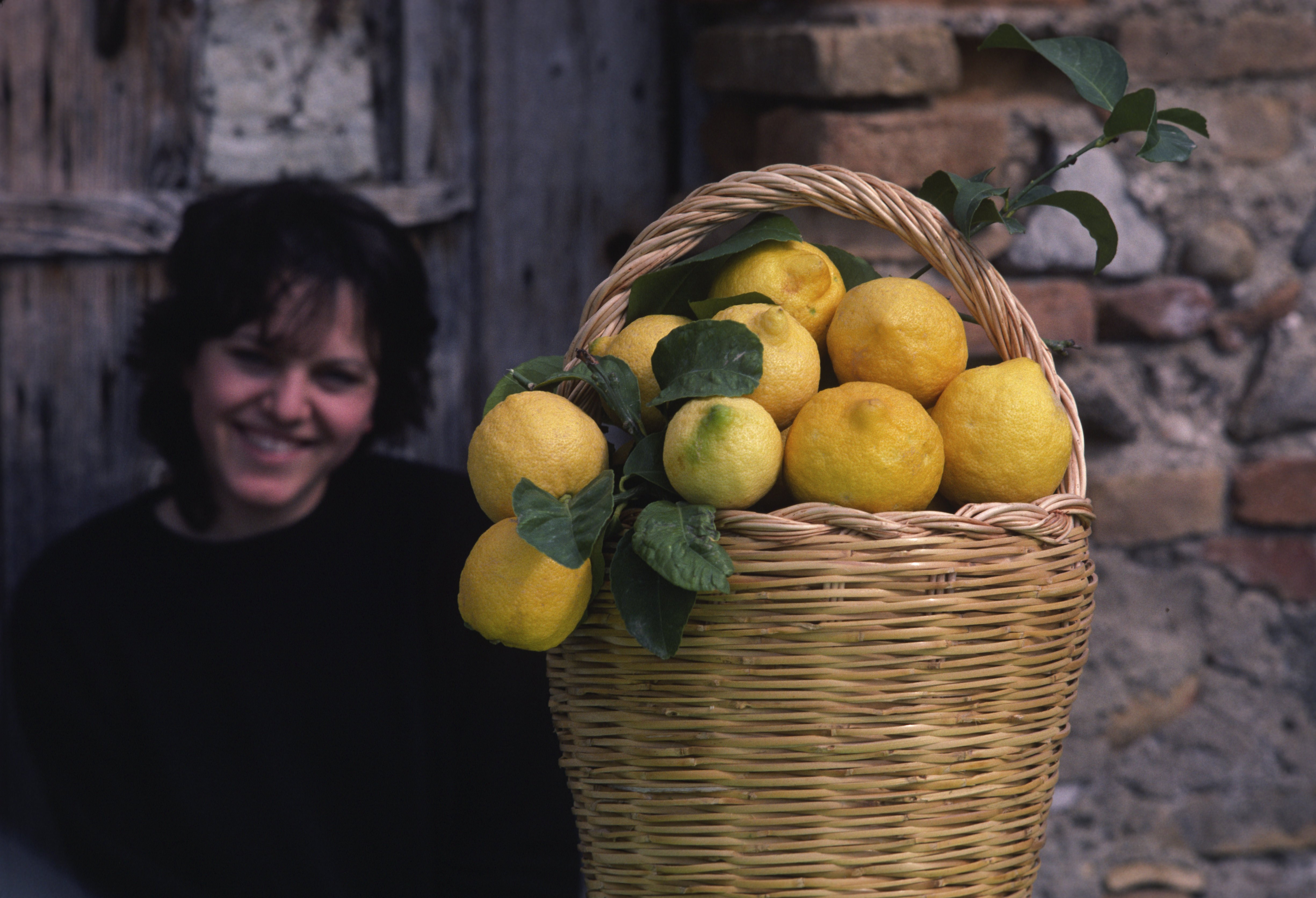
Lemon trees are abundant in Italy. Here, a bountiful Calabrian lemon harvest in the 1970s.
How Do I Layer Citrus Perfumes?
As Huber mentioned, citrus notes are the well-fitting white T-shirts of the fragrance world. They go with just about anything. "They can complement floral scents, creating a fresh and uplifting combination," adds Raguenes. "Citrus also harmonizes with aromatic notes like basil or mint, adding a dynamic and invigorating touch."
Woody and spicy elements, such as cedar and ginger, also pair well with citrus, creating a well-balanced and sophisticated scent when layered.
The History of Citrus Perfumes
Citrus has long been utilized in perfumery; historical records indicate that it held a prominent place in ancient civilizations, such as Egypt and Mesopotamia. During the Renaissance, citrus oils and extracts gained even greater popularity, and their use continued to be widespread.
And here's a fun fact, courtesy of Raguenes: released in the early 1700s, the original Roger & Gallet Eau de Cologne by Farina belongs to the citrus family. "Emblematic of well-being and freshness, it was originally a personal hygiene product used on the body," he shares.
Why Trust Marie Claire
For more than 30 years, Marie Claire has been an internationally recognized destination for news, fashion and beauty trends, investigative packages, and more. When it comes to the products Marie Claire recommends, we take your faith in us seriously. Every product that we feature comes personally recommended by a Marie Claire writer or editor, or by an expert we’ve spoken to firsthand.
How We Tested
To compile this list of the best fresh-smelling perfumes, I scoured the internet and combed through countless customer reviews to find the top-rated options on the market. I also asked the Marie Claire team to share their holy grail picks.
For each fragrance I tested, I assessed the fragrance's notes, how long it lasted, and its overall scent as the day went on.
Meet the Experts

Perfumer Erwan Raguenes is a graduate of the Grasse Institute of Perfumery and University of Montpellier.

Carlos Huber first pursued the study of architecture and historic preservation at universities in Mexico City, Paris and New York City. A move to France, and then Spain, awakened his love for the aromatic environments of the Mediterranean and strengthened his interest in architectural history. This led him to New York City, where he graduated with honors in Historic Preservation at Columbia University. Huber’s experience in the world of luxury retail, creating meticulously detailed interiors for Polo Ralph Lauren, provided a unique opportunity to understand the world of luxury retail. Turning to his longtime love of perfumery, Huber studied fragrance development and collaborated with internationally recognized nose Rodrigo Flores-Roux to recapture the olfactive notes of historical moments. After conducting extensive academic research, Huber developed ARQUISTE Parfumeur.
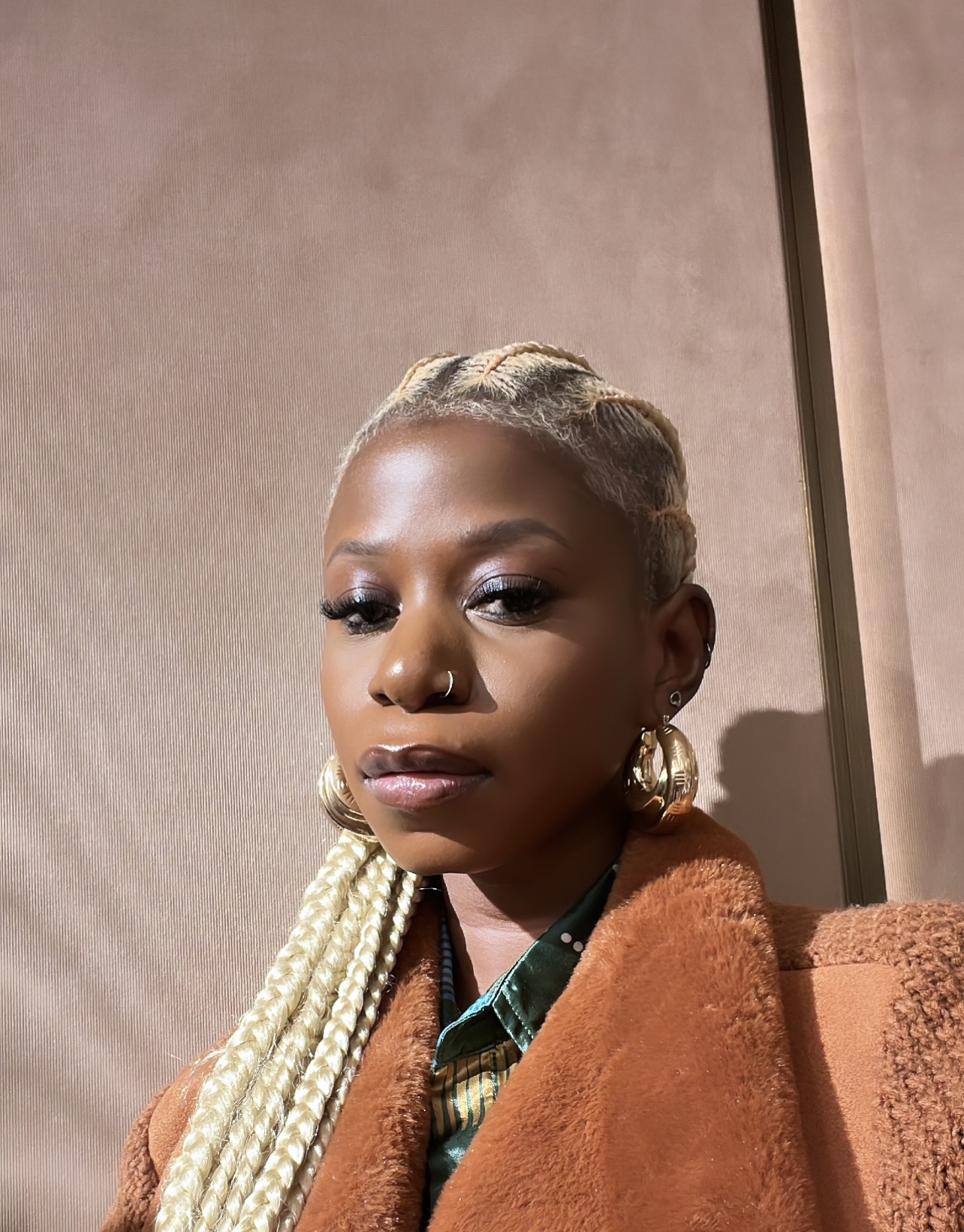
Eudora is a fragrance specialist by the Fragrance Foundation UK, published journalist, and magazine contributor promoting and demystifying the art of fragrance across various audiences.

In 2021, Ashley Boyce co-founded Noteworthy, a fragrance discovery company that stands at the forefront of innovation. Noteworthy leverages cutting-edge AI, data science, and proprietary technology to redefine the consumer experience through personalized scent recommendations.
Get exclusive access to fashion and beauty trends, hot-off-the-press celebrity news, and more.

Sophia Vilensky is a Freelance Beauty Writer at Marie Claire with a beauty, wellness, and entertainment journalism portfolio that includes contributions to Byrdie, Bravo, Teen Vogue, and Us Weekly. Growing up in a family of beauticians—and through her own personal studies—she developed an in-depth understanding of aesthetics, cosmetic product formulation, and beauty treatment development and has also held roles as a senior copywriter, content strategist, and proofreader for top beauty and wellness brands. Even so, you'd be hard pressed to find her with her hair and makeup actually done. Sophia is based in Minneapolis and is a 2019 graduate of the University of Minnesota, where she majored in English and minored in cinema studies. During her time at the university, she was the Arts & Entertainment Editor for the Minnesota Daily, earning the 2019 Editor of the Year award for her work. She connected deeply with the Twin Cities arts scene, collaborating with leading beauty professionals, designers, and artists. Graduating Summa Cum Laude, her thesis—a close-reading of Vanderpump Rules—was featured on NPR. When not immersed in writing or testing new products, Sophia enjoys watching reality TV, reading, and exploring the newest woo-woo wellness trends. Keep up with her on Instagram @sophiavilensky.

